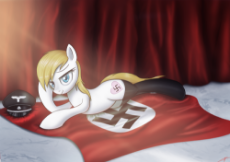"Cultural Marxism" was coined by American sociology professor Trent Schroyer in 1973.
http://www.iep.utm.edu/frankfur/
As for "Cultural Marxism" the Frankfurt school used the term "Cultural Hegemony" and "the Culture Industries"
https://www.marxists.org/reference/archive/adorno/1944/culture-industry.htm
Lukacs and Gramsci both argued that the reason that the Marxist class theory didn’t play out was because Western values were too deeply entrenched, notably the emphasis on the individual over the collective, and Christianity. These had to be destroyed in order for the communist utopia to be achieved.
In 1919, Lukacs was declared the “Minister of Culture” in the short lived Hungarian Soviet Republic. As someone in charge of education, he introduced some of the first sex education classes, designed to undermine the traditional sexual views of the West which he believed was a step closer to accomplishing his goal.
Gramsci worked on his “prison notebooks”, which outlined his chief insight which is called “cultural hegemony”.
https://plato.stanford.edu/entries/lukacs/
http://www-personal.umich.edu/~hfox/gramsci.html
Cultural hegemony stated the various factors that made Western civilization what it was, and was thus preventing the communist revolution. The key was to continue the “class war” but at the same, undermine these factors from within. These factors were:
Christianity
Authority
Sexual restraint
Personal responsibility
Heredity
Law
Truth
Family
Patriotism and national unity
Community
Conservatism
Language
Tradition
Gramsci believed that the media and academia had to issue a “counter-hegemony” message, which would help undermine these planks of Western culture.
https://onlinelibrary.wiley.com/doi/full/10.1002/9781118430873.est0614
/mlpol/ - My Little Politics
Archived thread
In 1937, Horkheimer wrote about what is today known as “Critical Theory”.
Critical theory is a social theory which is about criticizing the way a culture and “society as a whole” function, in order to change it.
Contrast this with other social theories, which are more just about understanding and interpreting why things are as they are.
https://plato.stanford.edu/entries/critical-theory/
Herbert Marcuse uses "critical theory" to push an agenda.
He said that niggers,fags,feminists and other sorts of degenerates would lead the charge for change and is called "the father of the new left"
Marcuse's search for a form radical subjectivity that could serve as an impetus for revolution or social transformation led him down a path not traveled by his Frankfurt School colleagues. Indeed, one of the criticisms of Marcuse is that he gave in to pessimism and gave up on the working class as revolutionary subject. For Marcuse, we must look to “the substratum of the outcasts and outsiders, etc,” for any social change (MacIntyre 1970: 87).
https://plato.stanford.edu/entries/marcuse/
Critical theory is a social theory which is about criticizing the way a culture and “society as a whole” function, in order to change it.
Contrast this with other social theories, which are more just about understanding and interpreting why things are as they are.
https://plato.stanford.edu/entries/critical-theory/
Herbert Marcuse uses "critical theory" to push an agenda.
He said that niggers,fags,feminists and other sorts of degenerates would lead the charge for change and is called "the father of the new left"
Marcuse's search for a form radical subjectivity that could serve as an impetus for revolution or social transformation led him down a path not traveled by his Frankfurt School colleagues. Indeed, one of the criticisms of Marcuse is that he gave in to pessimism and gave up on the working class as revolutionary subject. For Marcuse, we must look to “the substratum of the outcasts and outsiders, etc,” for any social change (MacIntyre 1970: 87).
https://plato.stanford.edu/entries/marcuse/
>>130558
Great post, will have to set aside time to read all the webpages.
Marxism is truly one of the greatest evils.
>archived the links before they disappear (always a shame if good resources are taken down)
>http://www.iep.utm.edu/frankfur/
>https://archive.fo/t47rq
>https://www.marxists.org/reference/archive/adorno/1944/culture-industry.htm
>https://archive.fo/5ur2L
>https://plato.stanford.edu/entries/lukacs/
>https://archive.fo/6w63s
>http://www-personal.umich.edu/~hfox/gramsci.html
>https://archive.fo/LYBTW
>https://onlinelibrary.wiley.com/doi/full/10.1002/9781118430873.est0614
>(not archivable)
>https://plato.stanford.edu/entries/critical-theory/
>https://archive.fo/EvJym
>https://plato.stanford.edu/entries/marcuse/
>https://archive.fo/Pe4JE
Great post, will have to set aside time to read all the webpages.
Marxism is truly one of the greatest evils.
>archived the links before they disappear (always a shame if good resources are taken down)
>http://www.iep.utm.edu/frankfur/
>https://archive.fo/t47rq
>https://www.marxists.org/reference/archive/adorno/1944/culture-industry.htm
>https://archive.fo/5ur2L
>https://plato.stanford.edu/entries/lukacs/
>https://archive.fo/6w63s
>http://www-personal.umich.edu/~hfox/gramsci.html
>https://archive.fo/LYBTW
>https://onlinelibrary.wiley.com/doi/full/10.1002/9781118430873.est0614
>(not archivable)
>https://plato.stanford.edu/entries/critical-theory/
>https://archive.fo/EvJym
>https://plato.stanford.edu/entries/marcuse/
>https://archive.fo/Pe4JE
Like bread and bolognesa, this link goes with the thread
>https://nationalvanguard.org/2015/05/the-origins-of-the-word-racism/
Its a nice read about the Origins of the word racism, from a German Jewish written that pushed the degenerate agenda
>https://nationalvanguard.org/2015/05/the-origins-of-the-word-racism/
Its a nice read about the Origins of the word racism, from a German Jewish written that pushed the degenerate agenda
>>130573
https://en.wikipedia.org/wiki/New_Left
This? Marcuse, Foucault, and Trotsky should be focused on more then. Marcuse was a member himself of Frankfurt.
https://en.wikipedia.org/wiki/New_Left
This? Marcuse, Foucault, and Trotsky should be focused on more then. Marcuse was a member himself of Frankfurt.
8 replies | 4 files | 1 UUIDs | Archived




 Ex: Type :littlepip: to add Littlepip
Ex: Type :littlepip: to add Littlepip  Ex: Type :eqg-rarity: to add EqG Rarity
Ex: Type :eqg-rarity: to add EqG Rarity 